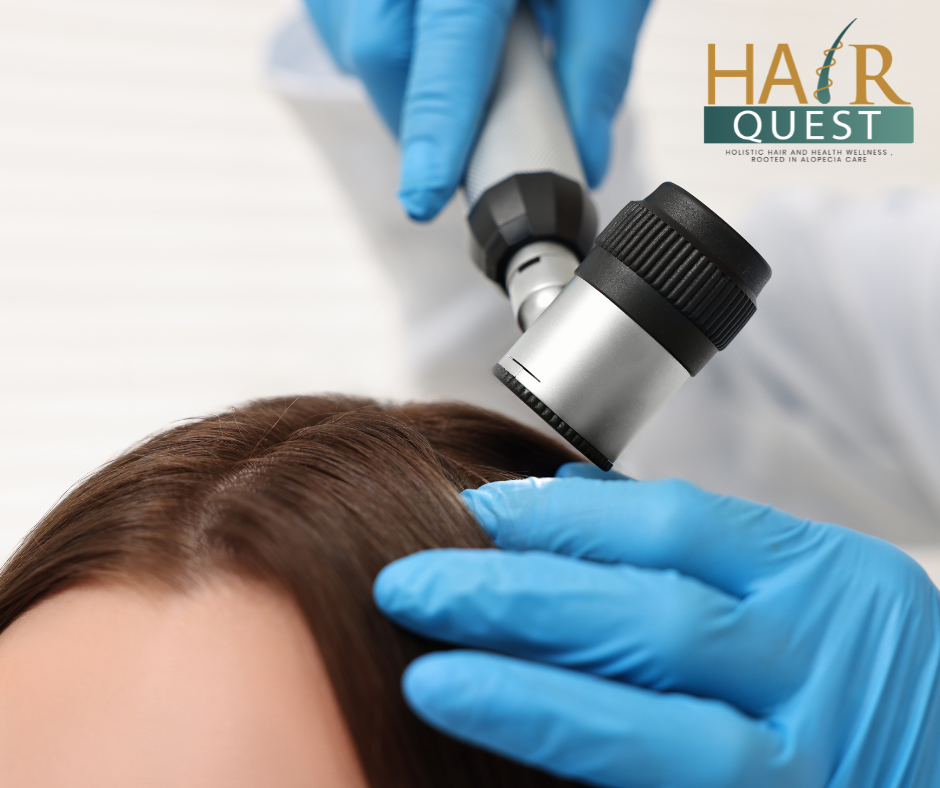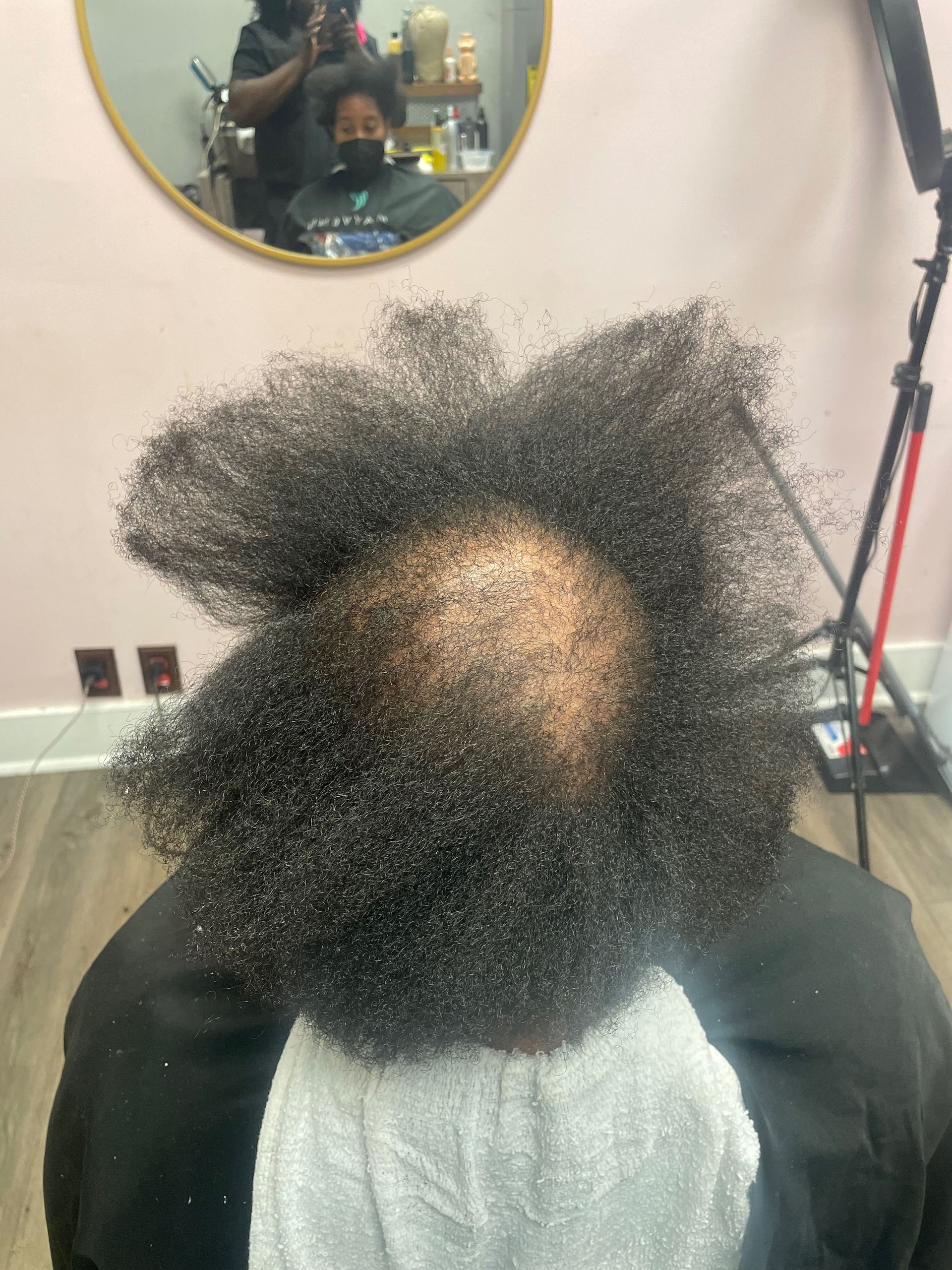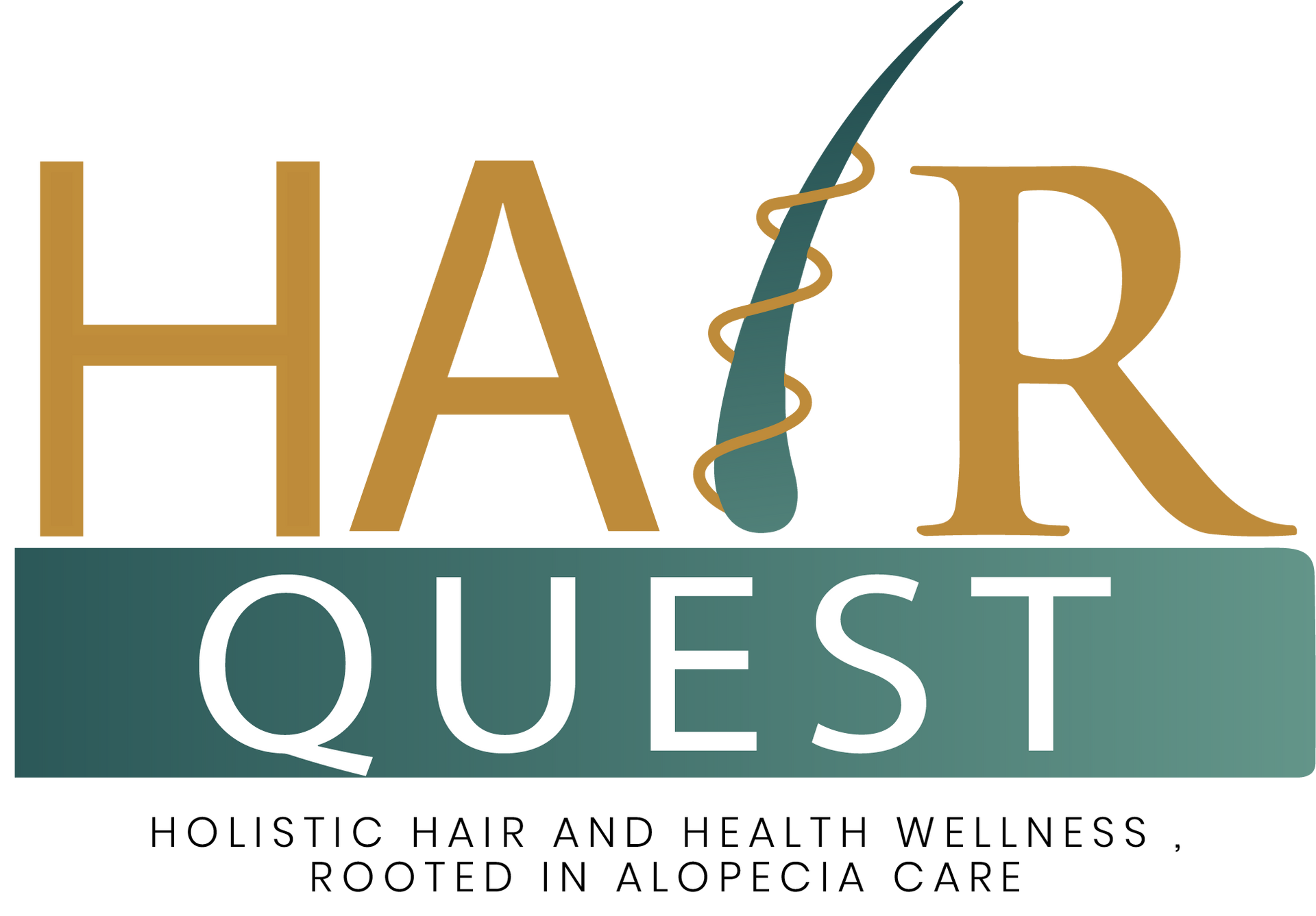What Is Trichology? The Missing Link in
Hair Recovery

So, What Is Trichology?
Trichology is the science of the hair and scalp — but more than that, it’s the study of what your hair is trying to tell you about your body.
When your hair starts shedding, it’s not random. It’s communication. It’s your body saying, “I’m overwhelmed.”
As a trichologist, my job is to interpret that message — to look beneath the surface and uncover what’s truly driving the imbalance.
Unlike a dermatologist, who focuses on treating conditions they can see, a trichologist looks at what’s happening inside — your nutrition, hormones, stress levels, gut health, medications, and even your emotional well-being.
Because hair loss isn’t just cosmetic. It’s chemical. It’s hormonal. It’s systemic.
The Difference Between a Dermatologist and a Trichologist
This isn’t about panic. It’s about paying attention.Here’s what most women don’t realize: your hair loss might not be about your scalp at all.
Dermatologists are medical doctors trained to diagnose diseases of the skin. Their job is to identify pathology — something that can be medicated or removed. And that’s important work.
But when the root cause is internal — a sluggish thyroid, inflammation, low ferritin, a congested liver, or nutrient depletion from medication — no amount of cream or steroid foam is going to create lasting results.
That’s where a trichologist fills in the missing pieces.
We ask questions like:
● Why are your follicles inflamed?
● Why is your scalp so tender?
● Why is your shedding consistent even though your labs are “normal”?
● Why did this all start after a stressful event, medication, or life change?
We zoom out to see your entire system and then zoom back in to build a plan that supports your body and your hair together.

Can a Trichologist Diagnose or Prescribe?
No — trichologists don’t diagnose medical conditions or prescribe medication.
But that’s actually what makes the work so powerful. Instead of chasing a label, we focus on restoring function. We use scalp imaging, assessments, and detailed health history to identify patterns and imbalances that may not show up in your labs but are still affecting your follicles.
If your doctor is focused on managing symptoms, a trichologist is focused on rebalancing the systems that control those symptoms in the first place. You won’t be handed a generic diagnosis — you’ll be guided toward understanding.
Do Trichologists Work with Medications or Natural Remedies?
Both — but differently.
If you’re currently using medication, we don’t tell you to stop. We help you understand how to support your body while on it. Because almost every medication has a ripple effect, and some of those effects can quietly impact your hair.
For example:
● Birth control can lower zinc and B vitamins, leaving your follicles starved.
● Thyroid meds might balance your TSH but not your T3 conversion.
● Metformin can deplete vitamin B12 and affect protein absorption.
● Antidepressants can slow your metabolism and dull cellular energy.
We bridge those gaps through nutritional and herbal support, detoxification, and topical therapies that restore balance naturally.
So whether you’re committed to a holistic lifestyle or just want to complement your medical care, trichology meets you in the middle — giving you the best of both worlds without judgment or extremes.
When Should You See a Trichologist?
Ideally, before you’re in panic mode. But even if you’re already there, it’s never too late.
You should see a trichologist if you notice:
● Persistent shedding for more than three months
● A widening part or thinning edges
● Tender, inflamed, or oily scalp
● Hair that feels dry, brittle, or weak
● A lack of growth even after “doing everything right”
If you’ve been to your dermatologist, spent money on supplements, or used every hair product
under the sun with little to no improvement — it’s time to go deeper.
Because your hair didn’t just start falling out last month.
It’s been responding to stress, imbalance, and depletion for a while.
It just took this long for your scalp to show it.
Book your Hair Recovery session today
Let's uncover what phase you’re in
If this sounds like you, your daughter, sister, or friend.
It’s time to stop guessing and start understanding.
I work with women across Moncks Corner and Berkeley County who are ready to decode their hormones, understand their hair, and create a strategy that fits them.
Your hair isn’t falling out for no reason. It’s trying to get your attention.
Let’s listen — together sister!





